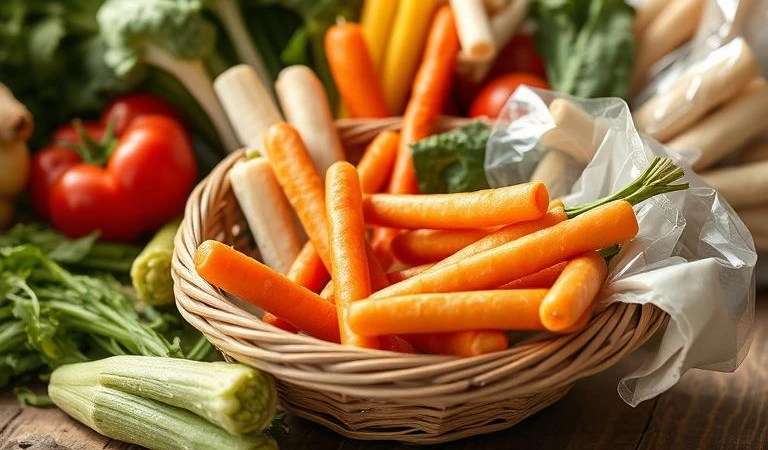1. Locally sourced and seasonal foods:
Supporting local farmers and consuming foods that are in-season helps reduce the environmental cost of transportation and supports biodiversity.
2. Organic and regenerative agriculture:
These farming methods focus on improving soil health, reducing chemical usage, and supporting biodiversity while producing food in an environmentally conscious manner.
3. Plant-based diets:
Focusing on plant-based foods has a lower environmental footprint compared to animal-based foods, requiring fewer resources such as water and land.
4. Reducing food waste:
Emphasizing efficient food use by meal planning, eating leftovers, and composting helps prevent food from going to landfills, where it contributes to methane emissions.
5. Ethical sourcing and fair trade:
Supporting companies that prioritize fair labor practices, animal welfare, and sustainable farming practices ensures that the people and communities behind our food are treated fairly.
6. Minimizing Food Packaging:
Sustainable food choices often involve purchasing items with minimal or eco-friendly packaging. This can include bulk buying, selecting foods without plastic wrapping.
